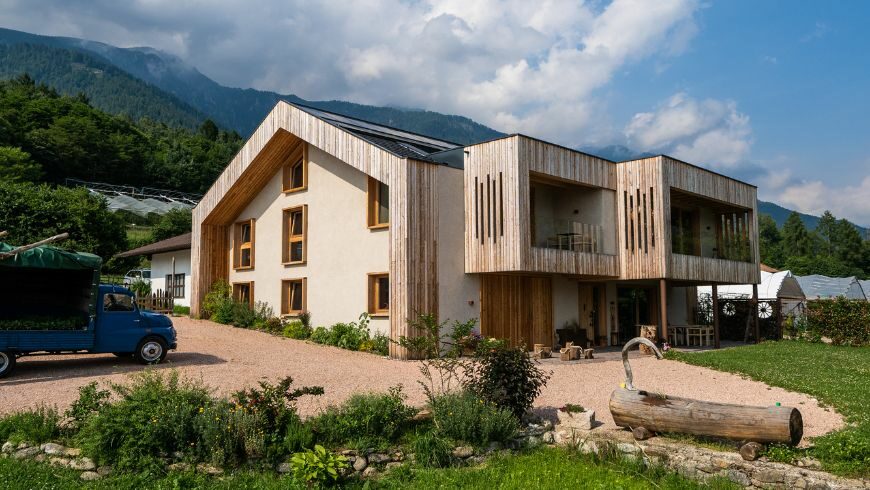Our planet’s well-being is a shared responsibility. As the temperature rises and climate concerns magnify, there’s a universal emphasis on “going green.” Transitioning to sustainable practices is no longer just a moral choice—it’s a pressing necessity. Our daily choices have lasting implications on Earth’s health, from the foods we consume to the modes of transportation we use. Within this context, exploring the role of technology in making travel more sustainable emerges as an essential topic, serving as a beacon for eco-conscious travelers and businesses alike. So let’s dive in!
Embarking on the Green Journey
The crux of sustainable living lies in limiting our carbon footprint and actively pursuing solutions to reverse existing damage. As the world steadily becomes more interconnected, we must adopt technologies for making travel more sustainable—a critical aspect of modern life. Let’s navigate the avenues where technology is championing the cause of sustainable travel.

1. Electric Evolution
The transformative power of electric vehicles (EVs) is truly revolutionary. Over the past decade, we’ve witnessed a global shift from traditional gasoline-powered vehicles to cleaner and greener EVs. Leading automobile manufacturers, recognizing the imperatives of sustainability, have amped up their EV production. That isn’t just about reducing CO2 emissions—although that’s a significant benefit. Electric vehicles also improve air quality, especially in urban centers, and significantly reduce noise pollution.
Moreover, the evolution of the electric infrastructure has been remarkable. Cities are not only increasing the number of charging stations but there’s also a strong push for innovations like super-fast chargers and solar-powered charging docks. These advancements make long-distance travel in EVs more feasible, bridging gaps and broadening horizons. So wait no more but reduce your carbon footprint with eco-friendly transportation choices today!
2. Flight in the Green Sky
Aircraft have long been a bane for environmentalists. The aviation sector has, historically, been a colossal contributor to global carbon emissions. However, the tides are turning. The concept of electric planes is no longer a daydream. While still in the developmental phase, electric aircraft promise an efficient and environmentally sensitive era of flight. The industry aims to reduce its environmental footprint drastically by combining these with improved air traffic management systems.
3. Smart Accommodations
The hospitality industry has long been associated with luxury and excess, but there’s a growing wave of smart, sustainable accommodations changing the landscape. Advanced technological systems in hotels now monitor and optimize room conditions based on occupancy, ensuring zero-energy waste when rooms are unoccupied.

Beyond this, hotels are taking bigger strides. Techniques like rainwater harvesting and greywater recycling are now part of hotel designs. Rooftops adorned with solar panels and waste management systems that turn organic waste into compost are becoming common. It’s a holistic approach to sustainability, blending luxury with responsibility. The best part is – the rest of the industry is following, too. For instance, many farm stays are introducing smart features to boost their sustainability efforts further. It’s a movement that’s spreading like wildfire!
4. Virtual Reality: A New Way to Explore
With the dawning of the digital age, how we explore and experience the world has evolved. Virtual Reality (VR) offers an innovative way to traverse globally renowned sites without contributing to their physical wear and tear. It’s one of the most popular eco-travel trends and is slowly taking over the scene!

For ecologically fragile zones, like certain caves or coral reefs, which heavy tourist footprints could damage, VR offers a unique solution. It’s not just about giving tourists a visual experience; integrated systems provide sensory experiences with sounds, narrations, and even simulated temperatures. It’s an immersive experience, safeguarding nature while quenching our innate wanderlust.
5. Green Apps for Conscious Travelers
In this digital era, our smartphones have become invaluable travel companions. Developers have released many green apps to recognize the increasing demand for sustainable travel options. These range from locating nearby EV charging points to identifying eateries that source ingredients sustainably.
Eco-conscious travelers can now find accommodations with robust green initiatives or use digital guides advocating sustainable tourism practices. E-tickets, meanwhile, minimize our reliance on paper. Travelers can make eco-friendly choices every step of the way through the simple tap of a screen.
6. Mass Transit Reinventions
Public transportation stands at the heart of sustainable urban development. As cities burgeon and populations swell, the need for efficient and green mass transit solutions intensifies. Cleaner energy sources, such as electricity and hydrogen fuel cells, increasingly power modern trains, buses, and trams.
Backed by real-time data analytics, smart transit systems ensure that routes are optimized, and vehicles are dispatched based on actual demand. That reduces unnecessary trips, conserves energy, and ensures that public transport remains a viable and green alternative to personal vehicles.
7. Sustainable Travel Platforms & Community Building
A rising star in the sustainable travel movement is the development and proliferation of digital platforms that champion eco-conscious travel experiences. Apps and websites dedicated to sustainable travel offer insights into green destinations and promote community-driven initiatives like eco-tourism, local craft markets, and farm-to-table dining experiences. These platforms create a space where travelers can share reviews, offer recommendations, and exchange tips about the most sustainable travel practices.

Moreover, they often spotlight local businesses and artisans to ensure the community benefits financially from tourism equitably. By weaving a web of informed travelers and local stakeholders, these platforms ensure that travel enriches both the wanderer and the destination.
Pioneering A Greener Tomorrow by Making Travel More Sustainable
As we inch closer to a green revolution in travel, it’s evident that the role of technology in making travel more sustainable is not just pivotal but transformational. From the cars we drive to the places we stay, every aspect of our journey is witnessing a sustainable makeover. By embracing these technological advancements, we safeguard our environment and pave the way for future generations to explore the world responsibly.

Author’s bio: Jane Clarke is a content writer at Number 1 Movers Canada. With a background in environmental studies and a passion for technology, she crafts engaging content that resonates with the eco-conscious audience. Jane is an avid traveler outside of work, always on the lookout for sustainable travel practices.
